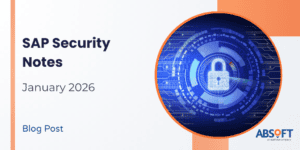The last few years have seen pressures on UK industries increase dramatically, arguably nowhere more so than within the food and beverage sector. With higher input costs, increased volatility and unpredictability within both the supply chain and consumer demand, combined with greater demand for online accessibility and sustainability, the need to have operations and manufacturing processes that are as efficient as possible is now a business imperative.
Throughout our latest webinar series, we’ve explored some of the most pressing issues and challenges in the industry. We’ve been looking at the following topics:
- SAP, EDI and Online Shopping Adoption –Â ordering process and supply chain integration
- The Connected Factory – looking at the efficiencies that can be achieved when companies start to take some of that automation and integration to the factory floor;
- Sustainability Strategies and how SAP ERP can help you control, track and reduce carbon emissions;
- And, for our fourth webinar from the series, we looked at logistical challenges, and how SAP can help businesses in the food & drink sector overcome some of them and achieve full transparency and efficiencies throughout the whole logistics network.Â
Gaining control over all operations
It is currently almost an intra-day occurrence that we hear about issues within businesses’ supply chains and logistical operations – from delays to raw materials and supplier shortfall; staff shortages within production facilities; to driver shortages and fleet capacity – logistically, food and drink businesses face a huge number of moving parts that can affect their ability to meet their contractual obligations and – ultimately – their customer promise.
The good news is that a fully integrated ERP system can ensure that there are no so-called ‘black boxes’ – no points of hidden or missing information – and therefore no reason for your business to not be fully in control.
> VIDEO: Watch the recording of this webinar to get more insights from our Food and Beverage SAPÂ experts.
The first step in the process is to have a full understanding, and full visibility, of your impending, expected and forecasted demand. Having a clear demand plan will allow you to work that through each step of the logistics process:
- What raw ingredients will you need to have available and when?
- How will demand fluctuations affect the production process and factory resources required?
- How will it impact production line maintenance schedules?
- What fleet capacity – down to route optimisation – will be needed to fulfill orders on time and in full?
Â
At the opposite end of the scale, a fully integrated ERP solution will enable you to de-risk your suppliers’ performance, highlighting where you might have shortfalls or where there may be risks. Indeed, contrary to historical best practice, in today’s volatile circumstances, rather than relying on one supplier you may choose to expand your options to ensure supply routes are – at least to some extent – protected.
> RELATED BLOG POST: How Can SAP Managed Service Providers Help You Minimise Delivery Driver Shortage Disruption?
Â
In summary
Whether it’s the ordering process; the factory setting; meeting sustainability credentials; or tackling supply chain volatility, having a fully integrated ERP solution can unlock the power of the information, the data, that is sitting within your business.
An SME SAP consultancy, Absoft has supported manufacturers, large and small, across a range of industries with SAP implementations, operations optimisations and migrations for over thirty years. As a Microsoft and SAP Partner, Absoft is ideally positioned to help and advise on moving and running your SAP systems into the cloud and optimising for optimum efficiencies and cost savings.
> CASE STUDY: Digital transformation towards intelligent, agile manufacturing
Â










